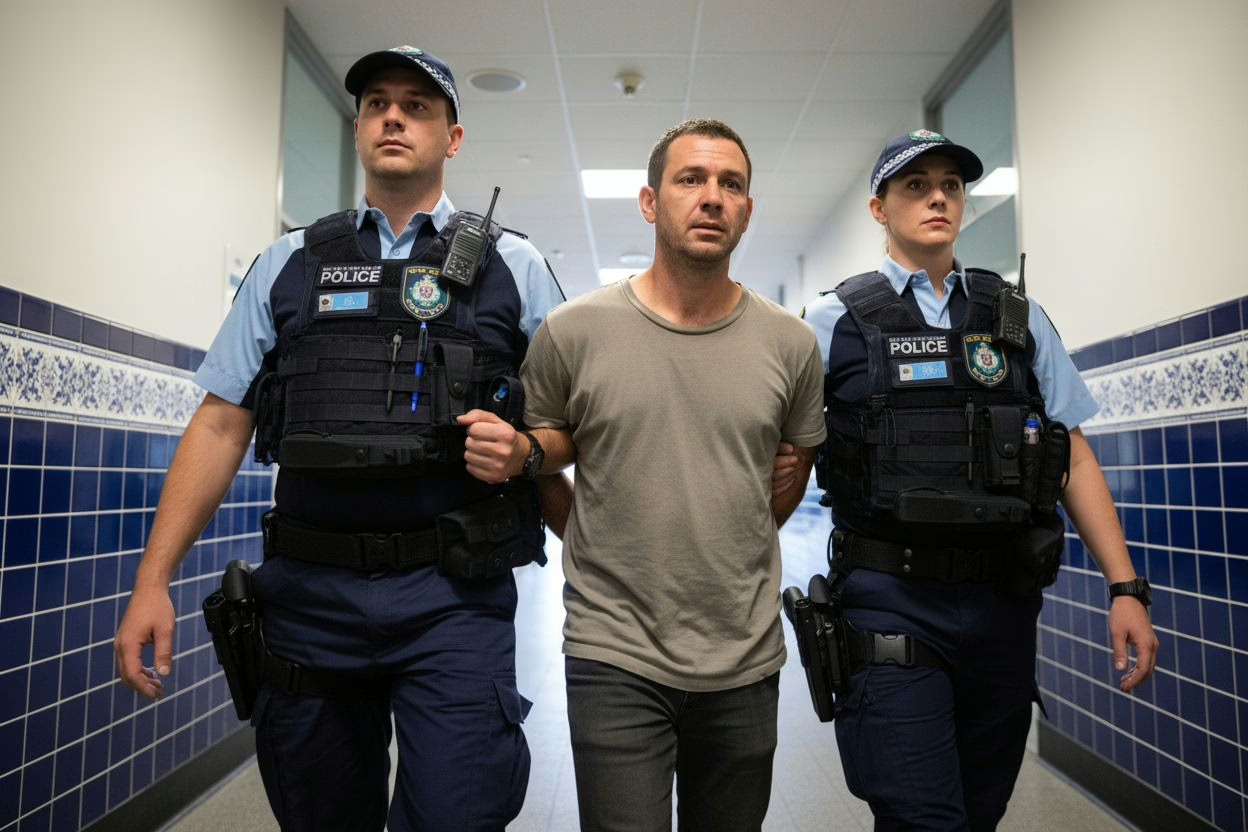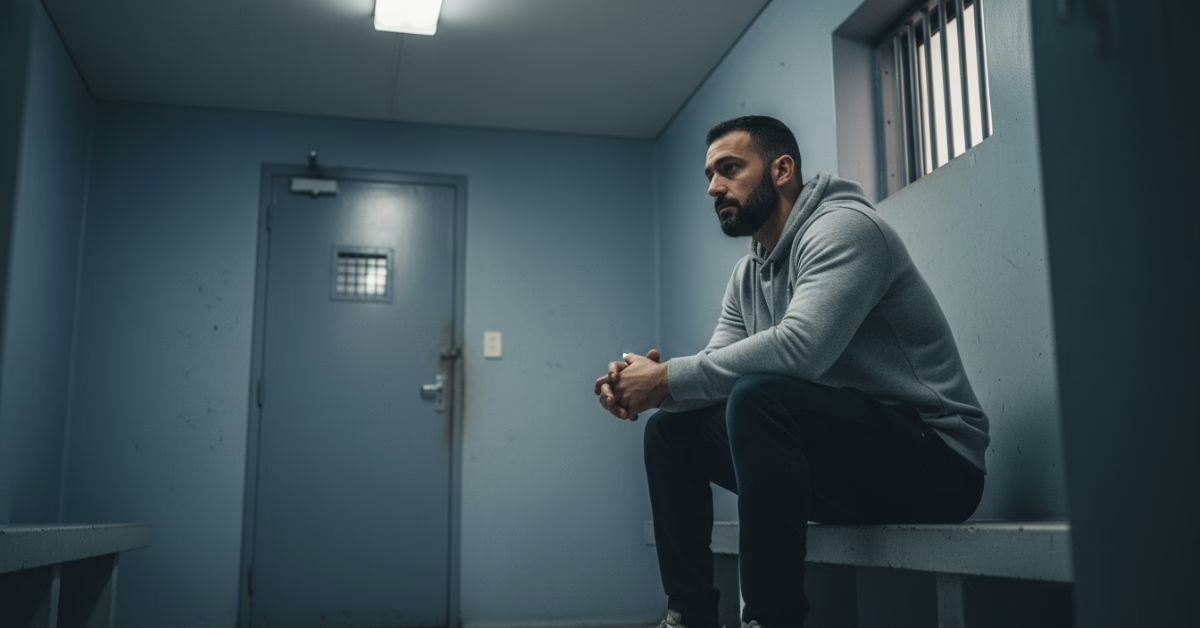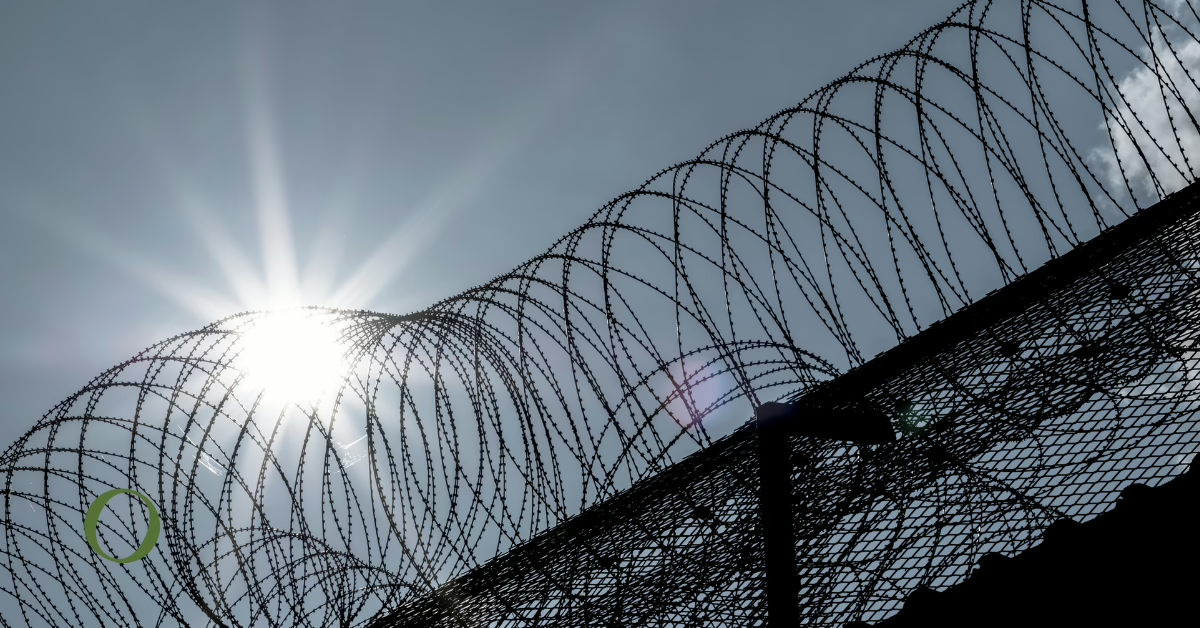Specialist Lawyers for Survivors of Historic Child Sexual Abuse
Your Voice Deserves to Be Heard
Trusted & Recommended by Clients. Let by Accredited Specialists
4.6 – 120 Reviews


The O'Brien Advantage
Proven Track Record in Abuse Claims
Detail successes in representing survivors of institutional abuse, securing justice, apologies, and compensation.
Trauma-Informed Expertise
Emphasize the team's deep knowledge of historic abuse law, combined with a trauma-informed approach that prioritizes survivor well-being.
Personalised Support
Explain that the team understands the sensitivity of these cases and provides a supportive, tailored legal strategy for each individual's unique situation.
No Win, No Fee*
Reassure clients that they can access expert legal representation without upfront costs or financial risk.
Holding Institutions Accountable: Claims We Handle
Abuse in Religious Institutions
Focus on claims against churches, dioceses, and other religious organisations for abuse perpetrated by clergy or members.
Abuse in Schools & Educational Facilities
Cover claims against public, private, and boarding schools for abuse by teachers, staff, or other students.
Abuse in Government & State Care
Address abuse that occurred in foster care, children’s homes, youth detention centres, and other state-run facilities.
Abuse in Disability Care & Services
We handle sensitive claims for survivors who were abused in disability care settings, including special schools, residential facilities, and therapy services. We are committed to fighting for vulnerable individuals failed by the systems designed to protect them.
Abuse in Healthcare & Medical Settings
We represent survivors abused in hospitals, psychiatric facilities, or by trusted medical professionals during their childhood. We hold healthcare providers and facilities accountable for profound breaches of trust.
Abuse in Youth & Community Organisations
Our experience extends to claims against sporting clubs, military and police cadets, scout groups, and other community organisations that failed in their duty of care to protect children.
Our Approach to Seeking Justice for Survivors
We know that coming forward takes immense courage. At O’Brien Criminal and Civil Solicitors, our legal approach is designed to empower you and make the process as clear and supportive as possible. We can help you by:
Sensitive Investigation and Case Building
We begin by meticulously and compassionately gathering all necessary information to build the strongest possible case. This involves collecting historical records, witness statements, and expert reports while always prioritising your emotional well-being and privacy. Our trauma-informed approach ensures this process is handled with the care and respect you deserve.
Strategic Negotiation and Redress
We are experts in every available pathway to justice. Whether through direct and confidential negotiations with an institution for a settlement and apology or by guiding you through the National Redress Scheme, we focus on the strategy that best suits your personal goals. Our aim is to secure a meaningful resolution that acknowledges the harm you suffered.
Litigating in Court Proceedings
When a fair settlement isn't possible, we are prepared to represent you fearlessly in court. As experienced litigators, we will advocate for you powerfully before a judge, presenting a compelling case to hold the institution publicly accountable. We will stand by you at every stage, providing robust support and clear guidance throughout the trial process.
Meet Our Specialist Abuse Law Team
With decades of combined experience, our dedicated abuse law team has established us as one of Australia’s leading firms in this area. Led by Law Society Accredited Specialists, our team is committed to providing compassionate and powerful advocacy for survivors of historical abuse.
We operate on a client-first, trauma-informed philosophy. Our goal is not just to win your case, but to ensure you feel heard, respected, and supported at every step. We provide clear advice and a roadmap to achieving a meaningful resolution in the most respectful and effective way.
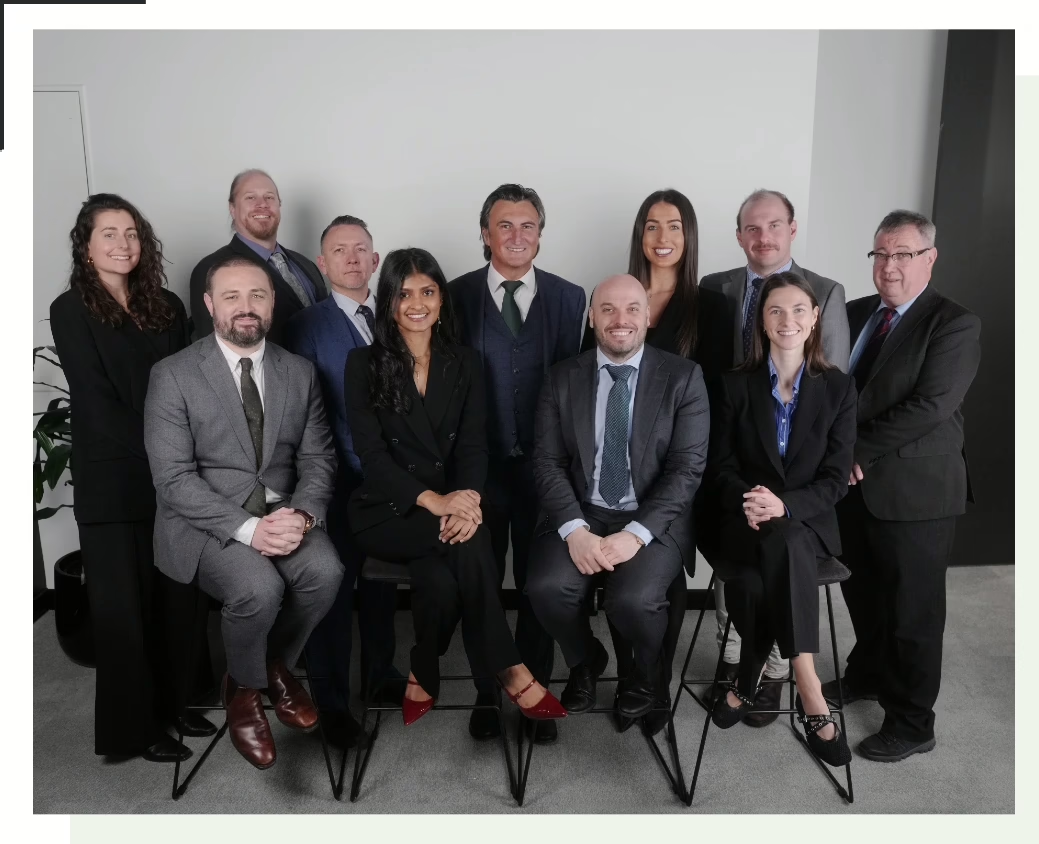
Our team is led by Law Society Accredited Specialists in Civil Law. This is the highest level of accreditation a solicitor can achieve, awarded only after a rigorous assessment of their expertise, experience, and specialist skills. When you work with us, you are working with proven experts at the top of their field.
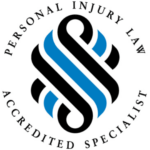
The Path to Justice: Your Claim Process
1. Free & Confidential Consultation
If you are a survivor of institutional abuse, contact us for a free, confidential, and no-obligation consultation. In a safe and supportive environment, our lawyers will listen to your experience, explain your legal options, and discuss our no win, no fee policy.
2. Building Your Case with Care
Should you choose to proceed, your lawyer will work collaboratively with you to gather evidence. We handle this process with the utmost sensitivity, developing a strategic case while always prioritizing your emotional well-being.
3. Clear & Consistent Communication
Your lawyer will keep you fully informed about the progress of your case, explaining all legal processes in clear, simple terms. We ensure you are a partner in the process and feel empowered to make key decisions.
4. Pursuing a Meaningful Resolution
Our lawyers will work tirelessly to achieve the best possible outcome for you. This may involve negotiating a private settlement, securing a result through a national redress scheme, or representing you powerfully in court proceedings.
Remember: The path to justice is a complex journey, and our experienced lawyers are here to guide you with compassion and strength.
Taking the First Step: What You Can Do
If you are a survivor seeking to hold an institution accountable, taking the first step can feel overwhelming. We are here to help you navigate the path forward when you are ready.
Document What You Can Remember
- Write Your Account: When you feel able, write down what you can remember about your experience. Include details about the institution, any individuals involved, and the general timeframe of events. Do this only as you feel comfortable.
- Gather Information: Collect any supporting documents you may have, such as old school reports, photographs, journals, medical records, or contact details of anyone who might be able to support your account.
Seek Specialist Legal Advice
- Consult a Lawyer: A specialist lawyer in institutional abuse cases will provide a safe, confidential space to discuss your situation. They will assess your legal options and provide an honest, clear path forward.
- Understand Your Case: Your lawyer will explain the different pathways to justice, such as a civil claim or applying to a redress scheme. We will ensure you understand the process, potential outcomes, and how we can best support you.
Prioritise Your Well-being and Privacy
- Seek Support: Your well-being is the absolute priority. We encourage you to seek support from a professional counsellor or a trusted support person as you navigate this process.
- Protect Your Privacy: Avoid discussing the details of your case publicly. Let your legal team manage all communications with the institution and other parties to protect your privacy and the strength of your claim.
General Tips for Survivors
- Act When You Are Ready
- There are no strict time limits for many historic abuse claims. The most important thing is to take action only when you feel ready. Contacting a lawyer sooner can help preserve evidence, but your readiness is what matters most.
- Know Your Rights
- You have the right to seek justice, acknowledgement, and compensation for the profound harm you have suffered. Our lawyers will advocate fiercely for these rights on your behalf.
Remember: You do not have to face this alone. Let the experts at O’Brien Criminal and Civil Solicitors guide you. We will fight to secure the justice and recognition you deserve. In all institutional abuse cases, you can benefit from having all costs covered in a no win, no fee arrangement.
Voices of Justice: Client Reviews
Read what clients of O’Brien Criminal and Civil Lawyers have said in Google Reviews after we’ve helped clients restore their good names.
William Spedding
Peter O'Brien (with his superb team) has been a phenomenal blessing to me. He believed me, supported me, and undertook extensive detective work and archive research in the preparation of my case culminating in a legal precedent that will be referred to by future court decisions. It has been a stressful 9 years from beginning to end and Peter was steadfast the entire time. Thank you Peter
Mr Garfield
Absolute best in the business, I had the pleasure of Peter running one of my civil cases and to say he and his team went above and beyond is an understatement, Peter and his team are both professional and friendly, can't thank you guys enough, one would say the Lamborghini of defence.
Ruen Motto
Used O'Brien solicitors for both my criminal law case which they managed to get all charges dismissed when I was looking down the barrel of 18 months jail. Then even more impressively ran my civil claim vs the police and I got a very good outcome and substantial pay out. Easy to talk to and actually listened and took my opinion into consideration which is a first. Highly recommend!
Daryl Ryan
I contacted O’Brien Solicitors after an incident involving NSW Police. The matter was based around Police behaviour in a Domestic Violence situation involving myself and members of my family. After hearing the details, Peter agreed to represent us on a no-win no-fee basis. Although potentially extremely stressful, Peter and his team made the whole process a lot easier than I had anticipated. The whole team at O’Brien's were terrific. The matter was settled and we were very happy with the outcome and, as promised, there were no fees payable by us. I couldn’t recommend this firm highly enough.
Madeline Hayman-Reber
I first got in touch with O'Brien's after I posted online about my family member's situation. Peter O'Brien messaged me personally and referred me to two amazing lawyers in his firm; Wilson and Sidnie. Outstanding attention to detail and empathy. Legal Aid was available, and the case was handled with a lot of care which led to a very positive outcome. Additional legal support was offered following the outcome, without having to ask. Highly recommended for both criminal and civil matters. Thank you!
William Hall
They stick up for the little guy. Keep it up!
Samira Bakhshi
O'Brien solicitors represented me in very complicated civil proceedings. From day one, I was greatly impressed by the knowledge and professionalism of the entire team at O'Brien solicitors. After a year of court proceedings, the matter was finalised in my favour and I could not have expected such a great outcome.
James Supple
O'Brien Solicitors are a highly capable and professional team who are very generous with their time and are willing to pursue justice against those powers that be. Peter and Sidnie agreed to represent the Refugee Action Coalition at short notice in court to defend the right to protest and prepared an excellent defence. They come up with legal avenues and solutions that many others have missed. Highly recommended. After a year of court proceedings, the matter was finalised in my favour and I could not have expected such a great outcome.
Susan
Ordinary people standing up against inhumanity, abuses of power and for a better world need to know someone has their back when their own rights are abused. Thank you.
John S
As a victim of police brutality, I was dismayed by the total lack of concern and a refusal to investigate the complaint I made in writing to the NSW Police and NSW Ombudsman. Even before I contacted Peter O'Briens Solicitors, I was encouraged by the information and positive attitude shown on their website. Peter O'Brien and the team at O'Briens Solicitors have been wonderfully helpful and supportive in seeking legal redress through the Courts. I wholeheartedly recommend Peter O'Brien’s Solicitors to anyone who has experienced police misconduct and had their rights trammelled by heavy-handed police officers.
FAQs on Civil Claims
What is institutional child abuse?
Institutional child abuse is any sexual, physical, or emotional abuse or neglect of a person under 18 that occurred within an organisation or institution. This includes:
Schools (public and private)
Churches and religious organisations
Government or state care (foster care, children's homes)
Sporting clubs and youth groups
Hospitals and healthcare facilities
Disability care services
In NSW, the law focuses on the institution's failure to provide a safe environment, making them legally responsible for the harm caused by their employees, volunteers, or members.
Is it too late for me to make a claim for abuse that happened decades ago?
No, it is not too late. All Australian states and territories, including NSW, have removed the time limits for bringing civil claims for child sexual abuse.
This legal change acknowledges that it can take many years or decades for survivors to feel ready to come forward. You can now seek justice regardless of how long ago the abuse occurred.
Who do I sue if the institution has closed down or the abuser has died?
You sue the institution, not the individual abuser. The claim focuses on the organisation's failure to protect you. Any compensation awarded is paid by the institution's insurer or assets.
Even if an institution no longer exists, it is often still possible to make a claim. A specialist lawyer can trace the institution's history to identify the responsible entity or its insurer that must answer for the claim. The death of the abuser does not prevent you from suing the institution.
What's the difference between a civil lawsuit and the National Redress Scheme?
These are two very different pathways to justice, and you should seek legal advice before choosing one.
Civil Lawsuit (Suing the Institution):
A legal action in court seeking full compensation for your pain and suffering, lost income, and treatment costs.
Compensation amounts are not capped and are often significantly higher than the Redress Scheme.
The process is managed by your lawyer, who advocates only for you.
National Redress Scheme:
An administrative government scheme, not a court process.
Offers a capped payment (up to $150,000), counselling, and an apology from the institution.
If you accept a Redress payment, you permanently lose the right to sue the institution for the abuse.
What does "no win, no fee" mean for an abuse claim?
"No win, no fee" means you do not pay our legal fees unless your claim is successful.
If you win: Our legal fees are calculated as an agreed portion of your final compensation.
If you lose: You do not pay our legal fees. However, you might still be responsible for "disbursements." These are out-of-pocket expenses paid to third parties, such as the cost of expert psychological reports or court filing fees.
We ensure you understand all potential costs in a clear costs agreement before we begin.
How much compensation can I get?
Compensation in a civil claim varies significantly based on the lifelong impact of the abuse. Factors considered include:
Pain, suffering, and emotional distress.
The cost of past and future psychological treatment.
Loss of past and future income and superannuation.
The cost of care and assistance provided by loved ones.
While every case is unique, civil claim settlements are intended to fully compensate you for your harm and often result in hundreds of thousands of dollars, significantly more than the Redress Scheme cap.
What evidence do I need for a historic claim?
Building a case for abuse that happened long ago can be challenging, but it is possible. Your own testimony is the most important piece of evidence. Other items that can help support your claim include:
Your personal journals, diaries, or letters from the time.
Statements from witnesses who may have seen something or to whom you disclosed the abuse (e.g., friends, family, or a school counsellor).
Medical or psychological records showing the impact on your health.
Any records from the institution, like school reports or enrolment documents.
Our lawyers are experts at sensitively gathering evidence to build a strong case, even when you have very little information to start with.
Will I have to face my abuser or go to court?
Most historical abuse claims are settled out of court through confidential negotiations. This means it is very unlikely you will have to face your abuser or testify at a public trial. Our goal is to resolve your claim in a way that minimises further trauma.
If the institution refuses to offer a fair settlement and the matter does proceed to a hearing, we will support you at every step and ensure
Civil Law Case Studies
- Nicole Byrne
- December 12, 2025
Suing NSW police. When NSW Police officers repeatedly violated a Sydney* woman’s rights, through
- Nicole Byrne
- December 5, 2025
Suing NSW Police for Excessive Force: O’Brien Criminal & Civil Solicitors successfully represented John*
- Nicole Byrne
- November 27, 2025
Brutalised by Senior Apprentices, Ignored by Superiors, John* Finally Receives Justice After Abuse at
- Nicole Byrne
- November 18, 2025
Our client, Derek*, a young Aboriginal man, successfully sued the State of New South
- Nicole Byrne
- October 30, 2025
In a major legal triumph for civil liberties, the New South Wales Supreme Court
- Nicole Byrne
- October 27, 2025
Our client, Rachel*, has courageously held the State of NSW accountable for the abuse
Get Expert Legal Advice - Free Initial Consultation
Speak directly with our experienced legal team about your case. We're here to protect your rights and guide you through every step.
Facing a similar legal challenge? Our experienced team has successfully handled cases like this. Contact us today for your free consultation.
- 100% Confidential
- No Obligation
- Award Winning Team
- Proven Track Record
- 100% Confidential
- No Obligation
- Award Winning Team
- Proven Track Record


